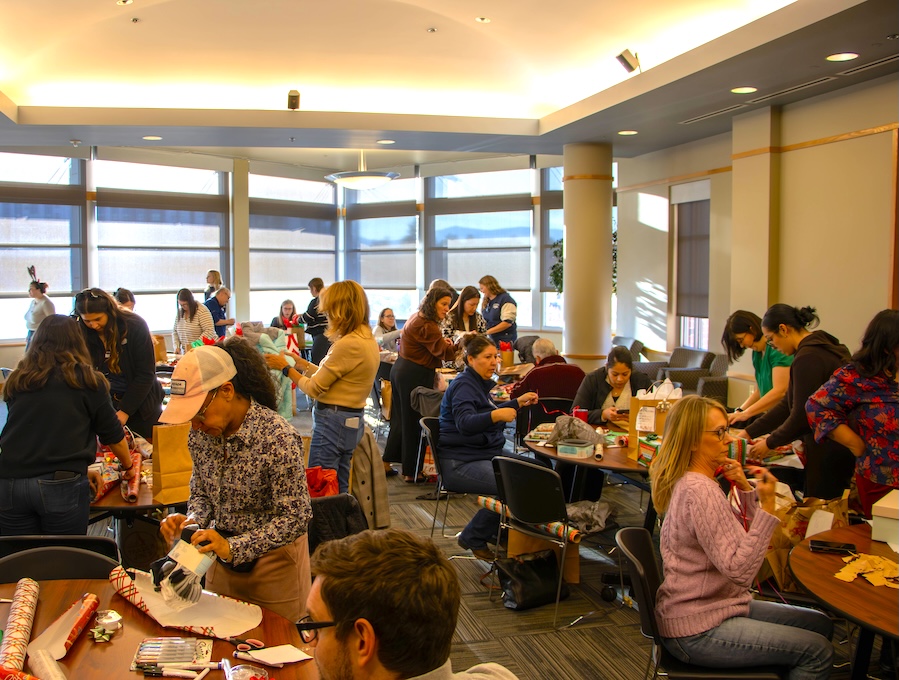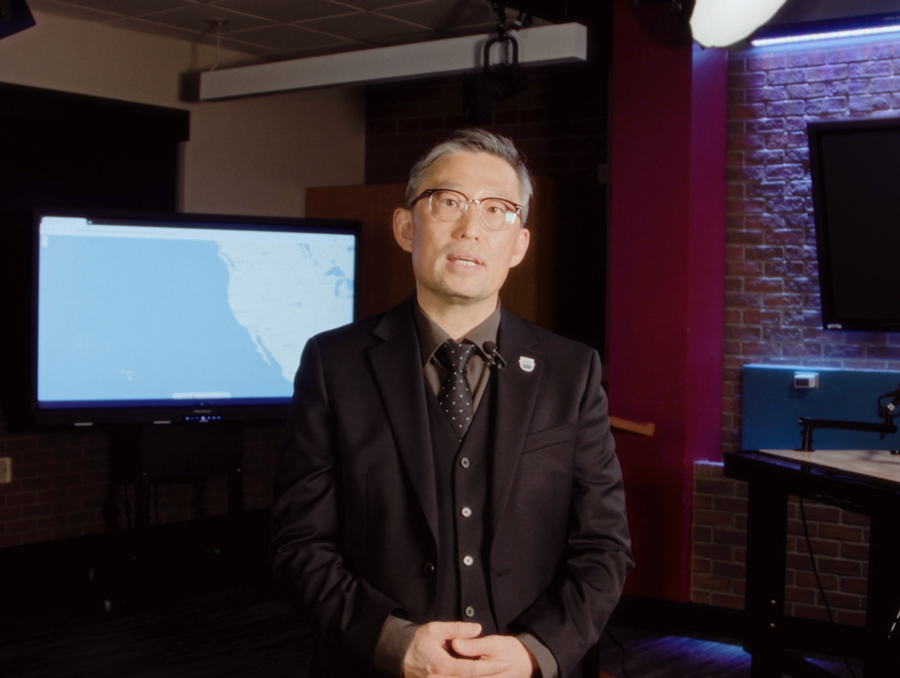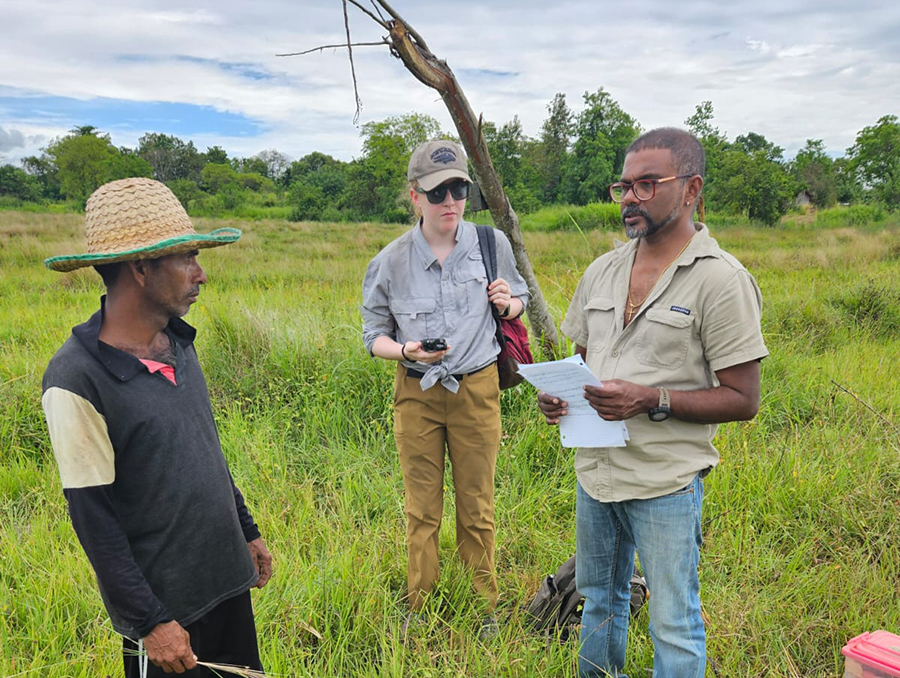It only takes Warren Lerude a matter of seconds — a couple of carefully crafted thoughts — to explain the impact of the words. They are words that are more than a half-century old. Yet they are words that still resonate today.
He recites them from memory.
“‘My father was a sheepherder, and his home was the hills,’” Lerude says, his eyes closing for a moment as he remembers the Nevada writer Robert Laxalt’s opening sentence to the 1957 book, Sweet Promised Land. Lerude, a Pulitzer Prize-winning journalist and University professor of journalism, was friends with Laxalt for more than four decades.
“Those are radiant, eloquent words," Lerude says. "You would be hard-pressed to find an opening line to any book over the past half century written with such economy, or with such feeling.”
Laxalt, known as Nevada’s greatest writer, passed away in 2001 at age 77. But his 17 books — and in particular, Sweet Promised Land, considered to be his finest work — continue to live on.
In order to welcome the Class of 2011 to campus, the University will be embarking on a special project this fall. The Class of 2011 Summer Scholar Project will ask all freshmen to read Sweet Promised Land over the summer. When they come to orientation in August, faculty, staff and administrators will lead study groups to discuss the book, which also is celebrating its 50th anniversary this year.
“This will be our entering freshmen’s first opportunity to participate with faculty, staff and administrators in an academic setting as they begin their college career, and I can’t think of a better book to serve as the centerpiece,” Nevada President Milt Glick said. “Our mission to enliven curiosity, cultivate critical judgment and encourage our students to make an informed contribution to the development of American society is well-served through the reading and discussion of Sweet Promised Land.
“Robert Laxalt and his family will always have a special place on our campus. What better way to honor a great writer, and a great Nevadan, than to have Nevada students reading, discussing and learning from his greatest work?”
Praise for Sweet Promised Land has been universal. The New York Times said the book “deserves universal regard as a classic of Americana.” The Washington Post called the book an “example of the art of writing.”
“Bob Laxalt was Nevada's Ernest Hemingway,” state Archivist Guy Rocha said. From his early days as a member of the University of Nevada’s boxing team to his later years, roaming the hills of the Carson Range behind his home in Washoe Valley while on horseback, or in the muted 4 a.m. air of the morning, writing stories on his trusted Royal typewriter, hours before his family would awake, Laxalt clearly appreciated the important intersection between the man of the West and his environment.
As the son of an immigrant sheepherder from the Pyrenees Mountains in France, Laxalt also understood what it meant to seek the sweet promise of a better life in America.
“Bob was a terrific writer, and his wonderful books spoke not just to Basques but to all the sons and daughters of immigrants … to those who love the American West and indeed all readers who enjoy simple but eloquent writing,” said Paul Laxalt, Robert Laxalt’s older brother and former United States senator and governor of Nevada.
Laxalt’s connections to the campus were strong. He was a 1947 graduate of the University with a degree in English. He joined Nevada’s faculty in 1954 as director of news and publications. He founded the University Press in 1961, and served as a journalism and writing instructor — influencing an entire generation of the state’s writers — and for the final two decades of his life was the University’s writer-in-residence.
His advice to his students?
“Take your writing seriously,” Laxalt would tell his students, “but never take yourself too seriously.”
Sweet Promised Land is the story of the journey of the Laxalt family’s father, Dominique, who came to America from the French Pyrenees at 16 years old to start a new life as a sheepherder in Nevada, as well as Dominique’s journey home 47 years later to the village of his birth.
What follows is a story of great clarity. It deals with the strong pull of conflicted emotion, where a father realizes his home is no longer in the mountains of the Pyrenees but in the sheep camps of the Sierra. By book’s end, Dominique’s heart song has truly become American. “I can't go back,” he says at one point. “It ain't my country anymore. I've lived too much in America ever to go back.”
Sweet Promised Land is a story of assimilation and appreciation for old ways and new ways, where the story of immigrants is emblematic of a new America, an America of dreams and stark realities, a difficult yet promising America.
Fifty years later, as the Class of 2011 embarks this summer on reading Laxalt’s carefully crafted words, the story has lost none of its currency or relevance.
“We were among the last whose names would tell our blood to know another language in our homes, to suffer youthful shame because of that language and refuse to speak it,” Laxalt writers. “And the irony of it was that our mothers and fathers were truer Americans than we, because they had forsaken home and family, and gone into the unknown.”











